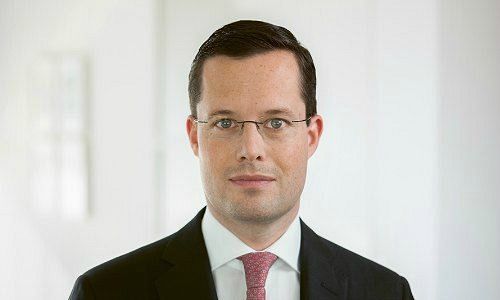Have you taken any measures as a consequence of this?
The current situation has unleashed potential to digitize our business model. For example we're rolling out a new technology application for «digital onboarding» soon. The launch of our mobile banking solution in the second half of 2020 gives us more options. And we can improve how efficient we are in daily business thanks to modern technology.
«We aren't immune to the laws of our industry»
For one, in view of high complexity, but also areas with an advanced degree of standardization. We can create more room for our private bankers to acquire clients and maintain relationships.
What will the lasting effects of the pandemic be for private banking?
The importance of electronic communication surged in a very short time, also with older generations. The changing behavior as a result is something which will outlast the crisis. In terms of our employees, we often hear that they miss personal interaction with colleagues at work. Still, we do see a desire for flexible work models. These need to be weighed in the context of our corporate culture and coordinated with client needs.
Maerki Baumann is investing to tap new client segments, but net new money last year was modest. Do you have to rethink your strategy?
Various market studies underscore that growing organically is an industry-wide challenge. In recent years, growth in Swiss private banking was mainly driven by mergers and acquisitions or market performance. Maerki Baumann isn't immune to this sectoral logic. But we remain optimistic: our legal set-up allows us to actively work on our core markets Switzerland and Germany – which make for 80 percent and 10 percent of client assets, respectively.
«The urgency to act was overshadowed by good market performance»
At the beginning of March, we established a private banking Germany department, from which we hope for more growth impetus. Our crypto segment is also drawing interest from a new and younger group of clients, Trading and custody of digital assets provides further market potential.
How will the Swiss wealth market change then – acceleration or consolidation?
I would be surprised if the looming recession didn't lead to another market consolidation. At the same time, I expect a massive push on innovation from firms which want to escape consolidating. Market performance significantly boosted revenue at many private banks in recent years. This will have somewhat overshadowed the need to act on strategy for more than a few of them. Business models need to be adapted – it is inevitable. This not least because of what younger clients want as well as innovative new market participants from the digital and fintech space.
Many people view the current crisis and changes as an opportunity. Which opportunities have you identified?
While the private banking industry in recent years was largely preoccupied with optimizing its business models, we'll see a phase of more fundamental changes. The last few weeks provided a steep learning curve for clients as well as employees in terms of using digital applications more. We can build on that. Ultimately I'm convinced that institutes will increasingly be willing to cooperate with each other – in particular for those with limited potential to differentiate.
Stephan Zwahlen has been the CEO of Zurich-based private bank Maerki Baumann for four years. He had previously managed the investment solutions and services unit and was part of top management. The 42-year-old Swiss banker worked for UBS' wealth management arm until 2009, but had worked for Maerki Baumann between 2005 and 2007, when he was responsible for the boutique wealth manager's strategic repositioning and the launch of a transaction bank. Zwahlen studied economics at the University of St. Gallen and at the Richard Ivey School of Business in Ontario.
- << Back
- Page 2 of 2




































